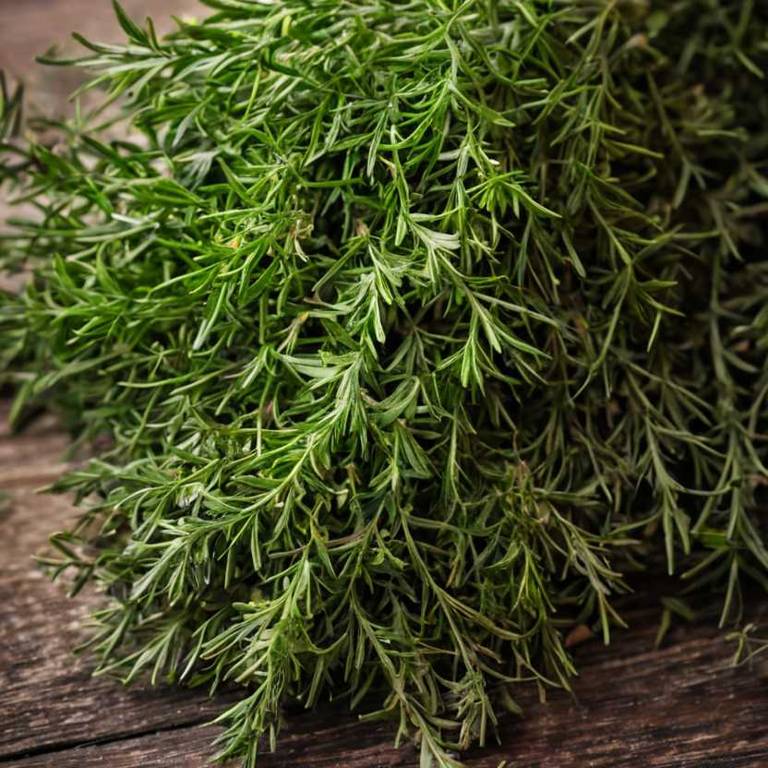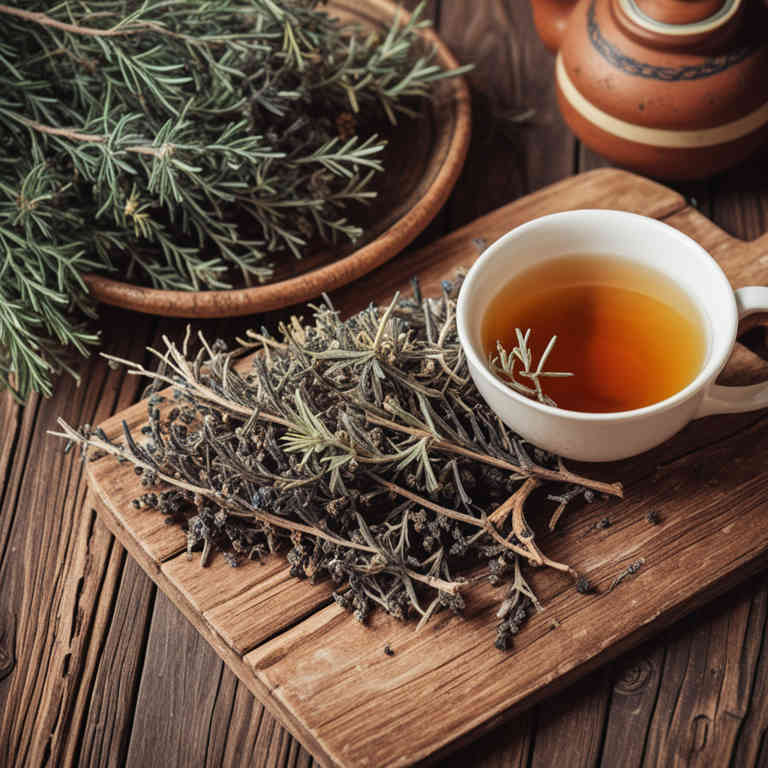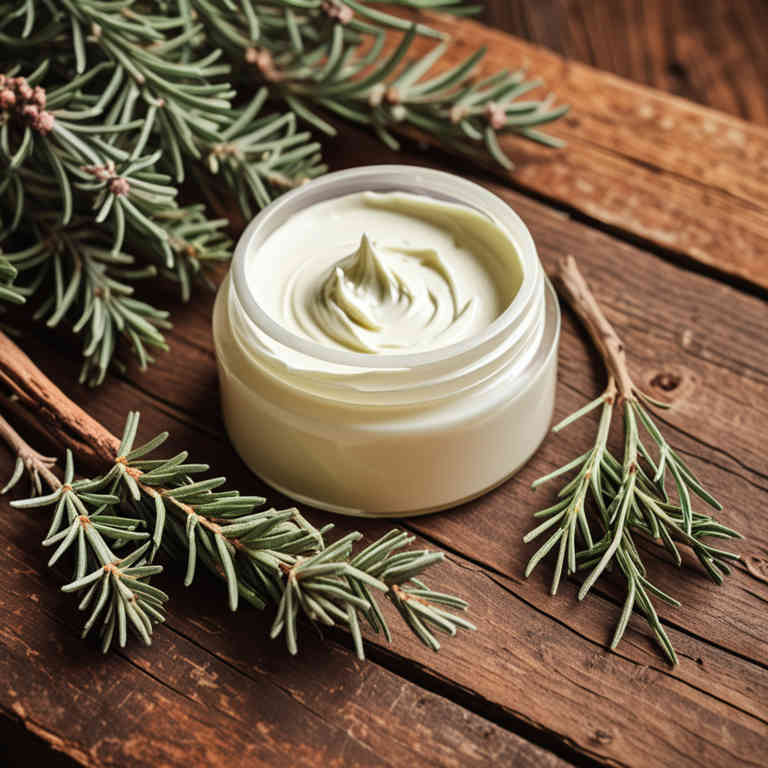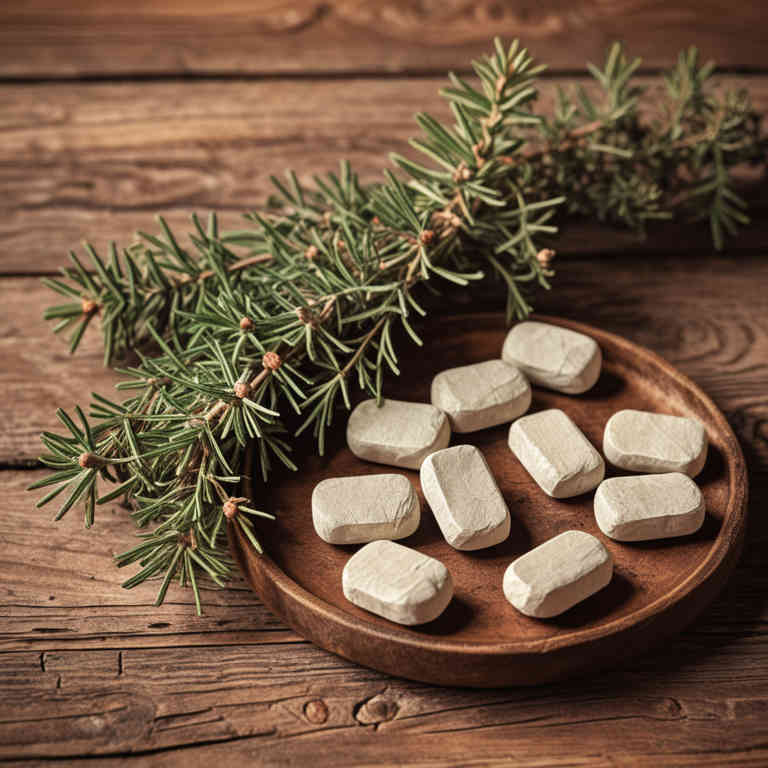10 Best Juniperus Communis Preparations

The best medicinal preparations of Juniperus communis are teas, decoctions, tinctures, capsules, and oils, each offering unique benefits for health and wellness.
Juniper berry tea is commonly used to support urinary tract health and digestion.
Decoctions, made by simmering the berries, are valued for their warming properties and detoxifying effects.
Tinctures provide a concentrated form of the herb, often used for its antiseptic and diuretic qualities.
Capsules offer a convenient way to consume juniper for its antioxidant and anti-inflammatory benefits, while oils are used topically for skin conditions and muscle pain.
Below there's a list of the 10 best herbal preparations of juniperus communis for medicinal purposes.
- 1. Teas
- 2. Decoctions
- 3. Tinctures
- 4. Capsules
- 5. Oils
- 6. Creams
- 7. Syrups
- 8. Mucillages
- 9. Lozenges
- 10. Baths
1. Teas
Juniperus communis teas is commonly used to support urinary tract health, aid digestion, and promote detoxification.
It is often employed to treat ailments such as urinary tract infections, bladder inflammation, and digestive discomfort. The tea is also believed to help with kidney function and may provide relief from symptoms of arthritis due to its anti-inflammatory properties. The bioactive constituents responsible for these effects include terpenes, flavonoids, and essential oils, which have antimicrobial, diuretic, and antioxidant properties.
Additionally, the presence of compounds like cineole and alpha-pinene contributes to its ability to soothe the urinary system and reduce inflammation.

2. Decoctions
Juniperus communis decoctions is commonly used to treat urinary tract infections, digestive issues, and joint pain.
These decoctions are often prepared by boiling the berries, leaves, or twigs of the plant in water to extract their active compounds. The most common medicinal uses include alleviating bladder infections, reducing inflammation, and promoting digestion. Bioactive constituents such as flavonoids, terpenes, and phenolic acids are believed to contribute to its antimicrobial, anti-inflammatory, and diuretic properties.
These compounds work together to support kidney function and reduce symptoms associated with urinary and gastrointestinal disorders.

3. Tinctures
Juniperus communis tinctures is commonly used to support urinary tract health, alleviate digestive discomfort, and promote detoxification.
These preparations are often used to treat ailments such as urinary tract infections, kidney stones, and digestive issues like bloating and indigestion. The bioactive constituents responsible for these medicinal properties include flavonoids, terpenes, and essential oils, which possess antimicrobial, anti-inflammatory, and diuretic effects. Additionally, juniper tinctures may help in reducing inflammation and supporting liver function.
However, they should be used with caution and under professional guidance due to their potential side effects.

4. Capsules
Juniperus communis capsules is commonly used to support urinary tract health, alleviate digestive issues, and promote detoxification.
They are frequently employed to treat urinary tract infections, kidney stones, and bladder inflammation due to their diuretic and anti-inflammatory properties. The capsules are also used to aid in weight loss and reduce water retention by increasing urine production. The bioactive constituents responsible for these effects include essential oils such as alpha-pinene and camphor, as well as flavonoids and phenolic compounds that possess antimicrobial and antioxidant activities.
These components work synergistically to enhance the plant's therapeutic potential in various health conditions.

5. Oils
Juniperus communis oils is commonly used to treat urinary tract infections, joint pain, and skin conditions due to its antimicrobial and anti-inflammatory properties.
It is also used in aromatherapy to relieve stress and improve mood. The most common medicinal uses include addressing kidney issues, digestive problems, and respiratory infections. The bioactive constituents responsible for these effects include terpenes, pinenes, and flavonoids, which exhibit antimicrobial, analgesic, and antioxidant activities.
These compounds contribute to the oil's ability to reduce inflammation, fight infections, and support overall wellness.

6. Creams
Juniperus communis creams is commonly used to treat skin conditions such as eczema, psoriasis, and fungal infections due to its antifungal, anti-inflammatory, and astringent properties.
These creams are also used for relieving muscle pain, arthritis, and minor injuries because of their warming and analgesic effects. The most common medicinal uses include addressing skin infections, inflammation, and pain relief. The bioactive constituents responsible for these effects include terpenes, flavonoids, phenolic compounds, and essential oils, which exhibit antimicrobial, anti-inflammatory, and antioxidant activities.
Additionally, juniper berries contain compounds like cineole and alpha-pinene that contribute to its therapeutic benefits.

7. Syrups
Juniperus communis syrups is commonly used to treat respiratory and urinary tract infections due to its antimicrobial and anti-inflammatory properties.
These syrups are often employed to alleviate symptoms of coughs, bronchitis, and urinary tract infections. The medicinal uses of juniper syrup also extend to aiding digestion and reducing inflammation in the gastrointestinal tract. The bioactive constituents responsible for these effects include terpenes, flavonoids, and essential oils, which possess antiseptic, diuretic, and analgesic properties.
Additionally, the presence of compounds like alpha-pinene and camphor contributes to its therapeutic benefits.

8. Mucillages
Juniperus communis mucillages is commonly used to support urinary tract health and as a diuretic.
It is often employed to treat conditions such as cystitis, urinary tract infections, and kidney disorders. The mucillages are known for their soothing and protective effects on the mucous membranes. The bioactive constituents include mucilage polysaccharides, flavonoids, and essential oils, which contribute to its anti-inflammatory and antimicrobial properties.
These components help reduce irritation and promote the elimination of toxins from the body.

9. Lozenges
Juniperus communis lozenges is commonly used to alleviate respiratory and throat ailments such as coughs, sore throats, and bronchitis.
These lozenges are often employed in traditional medicine to reduce inflammation and soothe irritation in the throat. The most common medicinal uses include treating colds, flu, and other respiratory infections due to their antimicrobial and anti-inflammatory properties. The bioactive constituents responsible for these effects include terpenes, flavonoids, and essential oils, which have antioxidant and antiseptic properties.
Additionally, juniper berries contain compounds like cineole and alpha-pinene that contribute to their therapeutic benefits.

10. Baths
Juniperus communis baths is commonly used to relieve muscle pain, joint stiffness, and skin conditions such as eczema and psoriasis.
This herbal preparation is also used to treat urinary tract infections, inflammation, and to promote detoxification. The most common medicinal uses include alleviating symptoms of arthritis, reducing inflammation, and supporting kidney function. The bioactive constituents responsible for these effects include terpenes, flavonoids, and essential oils, which have antimicrobial, anti-inflammatory, and diuretic properties.
These compounds work together to provide the therapeutic benefits associated with juniper baths.
